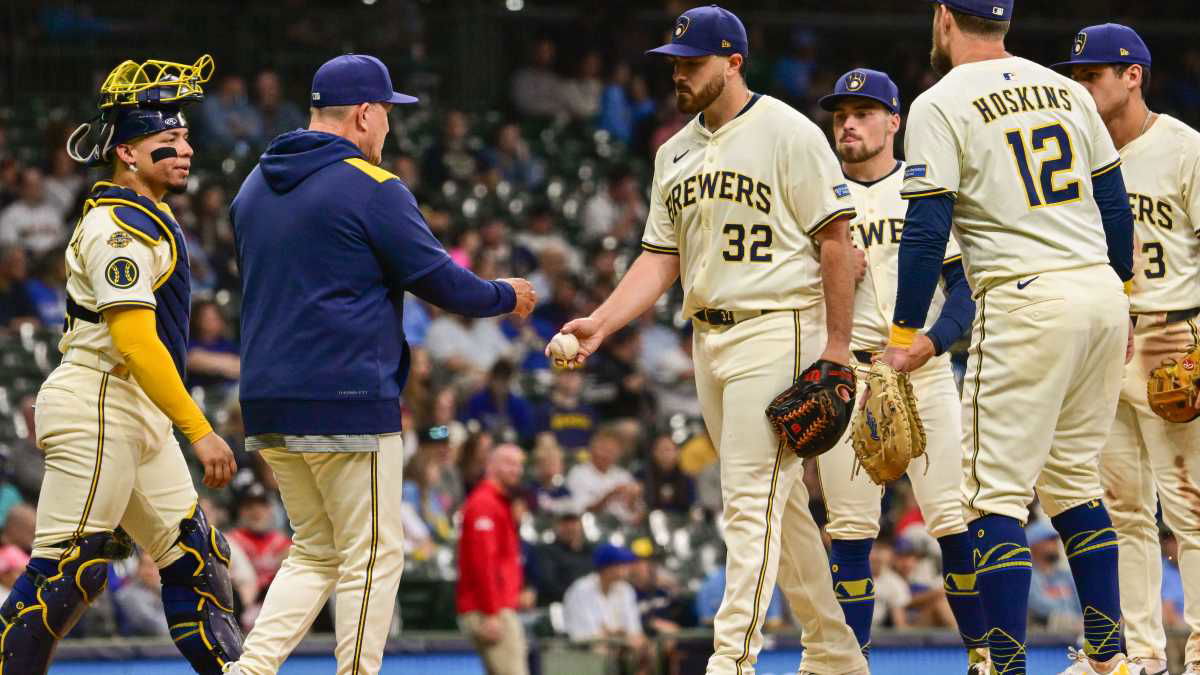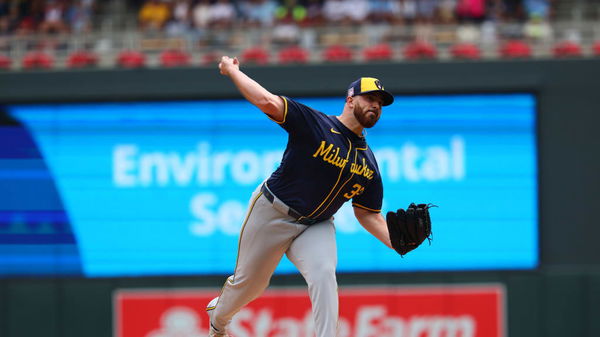

Shortly after switching to the bullpen, a former Brewers star asked for a trade. It hadn’t even been a full season with the Brewers after being acquired from the Tampa Bay Rays. The reason is pretty obvious, though! The $8 million star was struggling on the mound, as he went 1-2, recording only 19 strikeouts with a 4.91 ERA and a 1.36 WHIP. As a result, he was demoted to the minor league just last month. What followed was him requesting a trade, and the Brewers sending him to the Windy City. Though it seemed like he had finally found a stable home, the reality is far from it.
Watch What’s Trending Now!
Aaron Civale is now officially a part of the Chicago White Sox’s pitching unit. The team let go of their first baseman, Andrew Vaughn, in exchange for him. For a moment, it seemed everything was sorted. But Civale may just find himself grappling with another big problem. USA TODAY Sports’ Bob Nightengale revealed that Chicago might have a different plan for Civale, even though they “were thrilled getting veteran starter.”
It turns out the White Sox see Civale not just as a stopgap for their young, patchwork rotation but as a potential trade chip. “They won’t have Civale in uniform long. [White Sox] They plan to trade him at the July 31 deadline, believing they could get at least a couple of mid-tier prospects in return,” reported Nigtengale.
Instead of adding him to bolster their struggling rotation, they are positioning him as a short-term asset whose real value lies in his potential to be flipped for more prospects or young talents as trade deadlines approach. It’s a move that reflects both creativity and necessity for a franchise in transition. With their playoff hopes all but dashed, the White Sox know they need to think outside the box to accelerate their rebuild.

By giving Civale a prominent role in the rotation, they’re not only filling an immediate need but also giving him the perfect stage to showcase his talents. If Civale can string together a few strong outings, his value on the trade market could skyrocket. And that’s precisely what the White Sox are banking on.
Up until now, the White Sox have already made several moves to their roster. They demoted Tyler Gilbert and Tim Elko and called up players from Charlotte (Triple-A) in Vaughn’s place. Vaughn’s struggles left Chicago with little to lose, and now all eyes are on Civale to boost his stock before the trade deadline, when pitching-hungry contenders will be circling.
Aaron Civale’s debut didn’t go as the White Sox expected
In the end, Aaron Civale’s desire to stay a starter might have been successful. But his debut for the White Sox ended up gloomy. In the 2-1 loss to the Rangers, Civale allowed six hits and four walks. He also gave up two runs in the five innings he pitched. But there was a brighter note as well: Civale managed to strike out four batters.
Civale pitched the first inning scoreless, but the second inning cost him. He allowed a walk to Adolis García, who later scored the Rangers’ first run. It was followed by Ezequiel Duran’s another run. And again, on the fifth, Civale allowed three hits but got Jake Burger out. Despite throwing more pitches than any other White Sox starter that day, Civale was replaced by Dan Altavilla for the White Sox. But the problem is that manager Will Venable barely saw any of it. He got to see only 13 of those pitches from the dugout. Why? Maybe.
After a few close calls and strikes that didn’t work out for the White Sox, Venable got into a heated argument with Marvin Hudson, the home-plate umpire. As expected, Venable was tossed out. However, he didn’t shy away from crediting Civale for being able to pitch the five innings. “Not his sharpest day, but with these veteran guys that have experience, they’re able to navigate tough situations.”
Meanwhile, for Civale, starting remains his comfort zone. He can continue to play as a starter, just as he did earlier in his 123 appearances in the majors. But let’s be fair—Civale’s ERA stands at 4.67, and he allowed nine runs across the 24 innings he pitched. That, too, in his five starts. Can you believe it?
Shifting to different teams might be a challenge in itself, but the quicker he adapts, the better the chances for survival. However, Civale’s journey with the White Sox, perhaps, looks short-lived, with their plans to trade him instead.
Let’s wait and see whether Civale gets traded again this season. What do you think?






